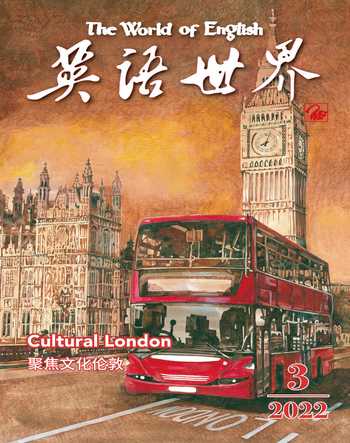The London Coffee Houses伦敦的咖啡馆
托马斯·巴宾顿·麦考利 罗怀宇
The coffee house must not be dismissed with a cursory mention. It might indeed at that time have been not improperly called a most important political institution. No Parliament had sat for years.1 The municipal council of the City had ceased to speak the sense of the citizens. Public meetings, harangues, resolutions, and the rest of the modern machinery of agitation had not yet come into fashion. Nothing resembling the modern newspaper existed. In such circumstances the coffee houses were the chief organs through which the public opinion of the metropolis vented itself.
The first of these establishments had been set up by a Turkey merchant, who had acquired among the Mohammedans a taste for their favourite beverage. The convenience of being able to make appointments in any part of the town, and of being able to pass evenings socially at a very small charge, was so great that the fashion spread fast. Every man of the upper or middle class went daily to his coffee house to learn the news and to discuss it. Every coffee house had one or more orators to whose eloquence the crowd listened with admiration, and who soon became, what the journalists of our own time have been called, a fourth Estate of the realm2.
The Court3 had long seen with uneasiness the growth of this new power in the state. An attempt had been made, during Danby’s administration4, to close the coffee houses. But men of all parties missed their usual places of resort so much that there was a universal outcry. The government did not venture, in opposition to a feeling so strong and general, to enforce a regulation of which the legality might well be questioned. Since that time ten years had elapsed, and during those years the number and influence of the coffee houses had been constantly increasing.
Foreigners remarked that the coffee house was that which especially distinguished London from all other cities; that the coffee house was the Londoner’s home; and that those who wished to find a gentleman commonly asked, not whether he lived in Fleet Street or Chancery Lane, but whether he frequented the Grecian or the Rainbow. Nobody was excluded from these places who laid down his penny at the bar. Yet every rank and profession, and every shade of religious and political opinion, had its own headquarters.
There were houses near Saint James’s Park where fops congregated, their heads and shoulders covered with black or flaxen wigs, not less ample than those which are now worn by the Chancellor and by the Speaker of the House of Commons. The wig came from Paris and so did the rest of the fine gentleman’s ornaments, his embroidered coat, his fringed gloves, and the tassel which upheld his pantaloons. The conversation was in that dialect which, long after it had ceased to be spoken in fashionable circles, continued, in the mouth of Lord Foppington5, to excite the mirth of theatres. The atmosphere was like that of a perfumer’s shop. Tobacco in any other form than that of richly scented snuff was held in abomination.
If any clown, ignorant of the usages of the house, called for a pipe, the sneers of the whole assembly and the short answers of the waiters soon convinced him that he had better go somewhere else. Nor, indeed, would he have had far to go. For, in general, the coffee rooms reeked with tobacco like a guardroom; and strangers sometimes expressed their surprise that so many people should leave their own firesides to sit in the midst of eternal fog and stench. Nowhere was the smoking more constant than at Will’s. That celebrated house, situated between Covent Garden and Bow Street, was sacred to polite letters. There the talk was about poetical justice and the unities of place and time. There was a faction for Perrault6 and the moderns, a faction for Boileau7 and the ancients. One group debated whether Paradise Lost ought not to have been in rhyme. To another an envious poetaster demonstrated that Venice Preserved8 ought to have been hooted from the stage. Under no roof was a greater variety of figures to be seen. There were Earls in stars and garters, clergymen in cassocks and bands, pert Templars, sheepish lads from the Universities, translators and index makers in ragged coats of frieze.
The great press was to get near the chair where John Dryden sat. In winter that chair was always in the warmest nook by the fire; in summer it stood in the balcony. To bow to the Laureate, and to hear his opinion of Racine9’s last tragedy or of Bossu10’s treatise on epic poetry, was thought a privilege. A pinch from his snuff-box was an honour sufficient to turn the head of a young enthusiast. There were coffee houses where the first medical men might be consulted. Doctor John Radcliffe, who, in the year 1685, rose to the largest practice in London, came daily, at the hour when the Exchange was full, from his house in Bow Street, then a fashionable part of the capital, to Garraway’s, and was to be found, surrounded by surgeons and apothecaries, at a particular table. There were Puritan coffee houses where no oath was heard, and where lank-haired men discussed election and reprobation through their noses; Jew coffee houses where dark-eyed money-changers from Venice and Amsterdam greeted each other; and Popish coffee houses where, as good Protestants believed, Jesuits planned, over their cups, another great fire11, and cast silver bullets12 to shoot the King.
咖啡館不能一笔草草带过。在那个年代,它被称作一种极为重要的政治机构或许并无不妥。英国议会已经多年没有开议。市议会也不再为市民代言。集会、演讲、决议等现代政治的鼓动机制尚未盛行,也没有任何现代意义上的报纸。在那样的情况下,咖啡馆便成了都市公共舆论自我表达的主渠道。
伦敦的第一家咖啡馆是一个土耳其商人开办的,咖啡是回教徒喜爱的饮品,他正是在与回教徒的交往中养成了喝这种饮品的习惯。咖啡馆给人们带来了极大的便利——在市区任何地方都可以约会,花一点小钱就可以在晚间社交——这使得这种时尚迅速风靡全城。中上階层的每一位男性每天都光顾他的咖啡馆,了解和讨论时事。每家咖啡馆都有一个或多个演说家,他们的高谈阔论使听众为之倾倒,很快就成为王国的“第四权”,这一称呼是我们如今冠以记者的。
对于国内这种新型权力的增长,王室在不安中观望已久。丹比伯爵治下的英国政府曾设法取缔咖啡馆,但由于人们不分党派都难以割舍这常常光顾的休闲之所,取缔之举遭到了普遍抗议。面对如此强烈而广泛的反对,政府没有冒天下之大不韪强推这项合法性很可能受到质疑的政策。在那以后的十年里,咖啡馆的数量和影响与日俱增。
外国人说:咖啡馆是伦敦区别于所有其他城市的一大特色;咖啡馆就是伦敦人的家;若想寻一位绅士,不必问他是住舰队街还是法院巷,只需问他是经常光顾“希腊人”还是“彩虹”。只要放点钱在咖啡馆的吧台上,任何客人都不会被拒绝。只不过,每一个阶层和职业、每一种宗教和政治观点,都有属于自己的聚集地。
圣詹姆斯公园附近有几家咖啡馆是纨绔子弟的会所。他们头戴及肩的黑色或亚麻色假发,比起大法官和下院议长如今戴的,发量只多不少。这种假发来自巴黎,同样来自巴黎的还有这些花花公子身上的其他饰物、刺绣外套、花边手套和紧束马裤的流苏。他们交谈时的那种腔调,时尚交际圈早已没人再用,人们倒是还能从浮平顿爵士的口中听到,那是为了逗乐剧院的观众。咖啡馆里的空气跟香水店差不多。除了香气浓郁的鼻烟,任何其他种类的烟草都会招致白眼。
要是哪个蠢货不谙馆规,要抽烟斗,满屋子的嘲讽和侍应生轻慢的回答会让他立刻明白他最好另寻去处。不过,实际上,他也用不着走多远。因为,一般而言,咖啡屋里的烟味和警卫室差不多;初来乍到者有时不免讶异,为何这么多人不待在自家火炉旁,却要坐在这种永远弥漫着烟气和臭味的所在。烟抽得最厉害的莫过于威尔咖啡馆。这家声名卓著的咖啡馆坐落在科文特花园和弓街之间,是风雅文学的神圣之所。在那里,人们谈论着关于诗性正义、时空统一性之类的话题。有支持佩罗和现代派的,也有支持布瓦洛和古典派的。有一群人在辩论《失乐园》该不该使用韵体;而在另一群人中,一个妒火中烧的蹩脚诗人正说服听众应该把《威尼斯劫余记》轰下舞台。没有哪个屋檐下能见到更多的众生相。这里有佩戴嘉德勋章的伯爵、长袍冠带的教士、骄矜无礼的圣殿骑士,还有怯懦的大学青年、衣衫褴褛的象寄译鞮之士和索引编纂者。
人们争相挤到约翰·德莱顿落座的椅子旁边。冬天,那把椅子总摆在炉边最暖和的角落;夏天则放置在阳台。向这位桂冠诗人行鞠躬之礼,聆听他对于拉辛最新悲剧或者博苏史诗论文的看法,人们感到与有荣焉。能得到他鼻烟壶里的一小撮烟粉,这样的荣耀足以使年轻的拥趸意乱神迷。可能就是在一些咖啡馆里,最早的一批医师开始坐诊。1685年,约翰·拉德克利夫医生跃升为伦敦最有影响的行医者。每天,交易巷人群熙攘时,他都会从位于弓街的宅邸——那时弓街是首都的一个时尚地段——来到加拉维咖啡馆。于是人们总能看见,在一张特定的桌子前,一群外科医生和药剂师簇拥着他。清教徒的咖啡馆里听不到咒骂声,直发的男性用浓重的鼻音讨论着上帝的拣选和摒弃的问题;在犹太人的咖啡馆里,来自威尼斯和阿姆斯特丹的黑眼睛钱商彼此打着招呼;而在天主教徒的咖啡馆里,虔诚的新教徒一定以为,那些耶稣会士一边喝着咖啡,一边在密谋又一场大火,还要铸造银色子弹行刺国王。
(译者单位:北京语言大学)
1924501186362

